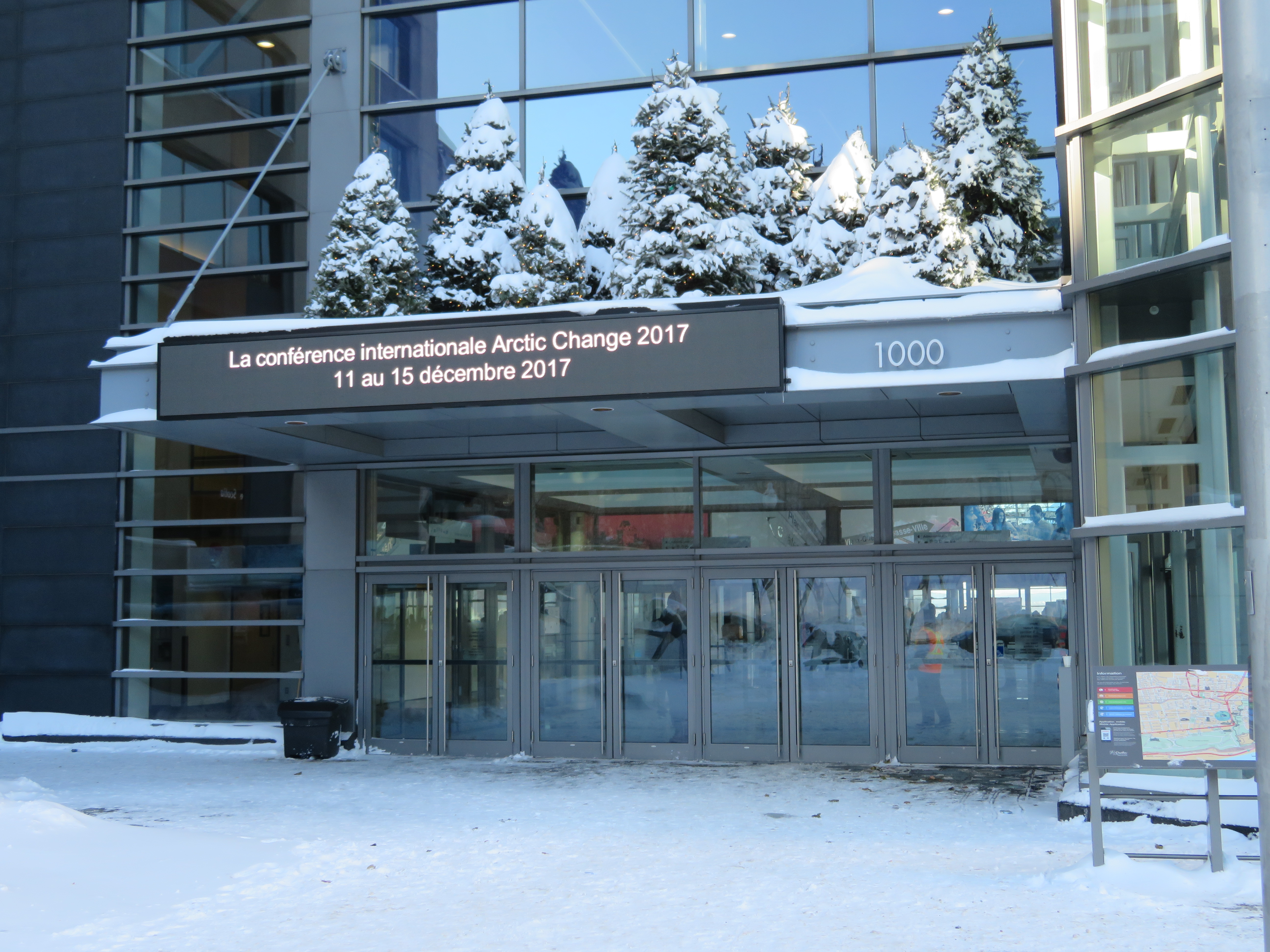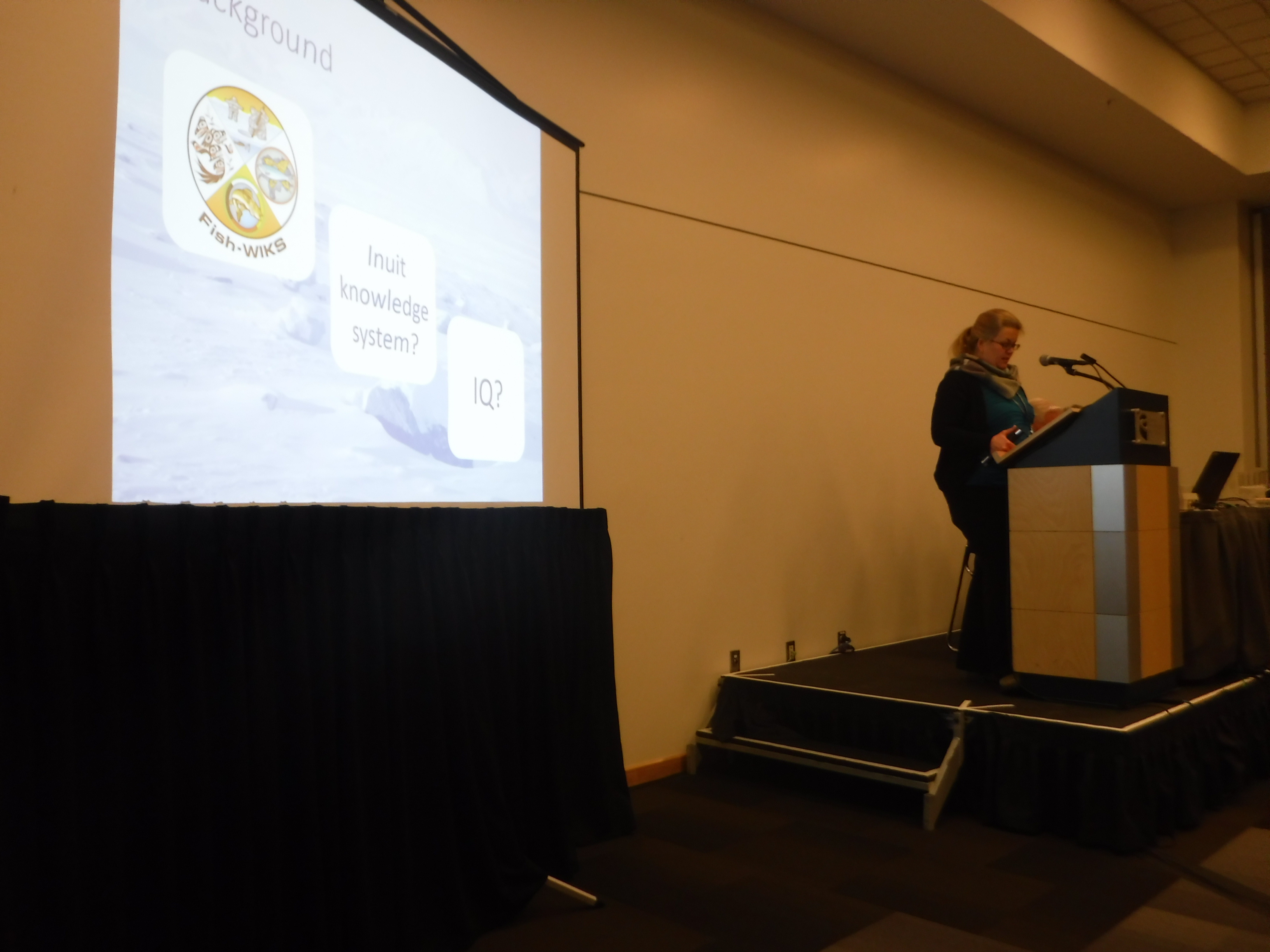Fish-WIKS News
» Go to news mainArctic Change Conference 2017
 Hard to pronounce and even harder to define, Inuit Qaujimajatuqangit (IQ) is a term one cannot evade when doing research in the Territory of Nunavut, as the two are intrinsically tied. Coming from the Inuktitut verb root “qaujima-“, meaning “to know”, Inuit Qaujimajatuqangit is often translated as “Inuit traditional knowledge”. But what is IQ? Very early on during my field work it became clear that IQ means very different things to different people. As I immersed myself in data transcription and analysis, I thus first focused on specifically analyzing the various answers to the question What is Inuit Qaujimajatuqangit?. Working with just a subset of my data at first was a safe way to get to know the qualitative data analysis (QDA) software while still advancing my analysis. Using frame analysis, I evaluated how my research participants understand Inuit Qaujimajatuqangit. From their data, four different frames emerged: a bygone knowledge perspective, a traditional ecological knowledge perspective, a holistic, yet today rudimentary Inuit worldview perspective and a universal guiding principles perspective.
Hard to pronounce and even harder to define, Inuit Qaujimajatuqangit (IQ) is a term one cannot evade when doing research in the Territory of Nunavut, as the two are intrinsically tied. Coming from the Inuktitut verb root “qaujima-“, meaning “to know”, Inuit Qaujimajatuqangit is often translated as “Inuit traditional knowledge”. But what is IQ? Very early on during my field work it became clear that IQ means very different things to different people. As I immersed myself in data transcription and analysis, I thus first focused on specifically analyzing the various answers to the question What is Inuit Qaujimajatuqangit?. Working with just a subset of my data at first was a safe way to get to know the qualitative data analysis (QDA) software while still advancing my analysis. Using frame analysis, I evaluated how my research participants understand Inuit Qaujimajatuqangit. From their data, four different frames emerged: a bygone knowledge perspective, a traditional ecological knowledge perspective, a holistic, yet today rudimentary Inuit worldview perspective and a universal guiding principles perspective.
 In December 2017, I was able to present these findings in both an oral and a poster presentation at Arctic Change 2017, the largest multidisciplinary international Arctic research conference held in Canada. This year, almost 1500 delegates convened in Québec City to share and discuss their research, among them other members of the Fish-WIKS team. It was wonderful to reconnect with them in person.
In December 2017, I was able to present these findings in both an oral and a poster presentation at Arctic Change 2017, the largest multidisciplinary international Arctic research conference held in Canada. This year, almost 1500 delegates convened in Québec City to share and discuss their research, among them other members of the Fish-WIKS team. It was wonderful to reconnect with them in person.
Recent News
- Muiwatmnej Etuaptmumk Conference 2023 LiveStream
- Knowledge Pluralism in First Nations’ Salmon Management
- Learning Lodge on Mi’kmaw Livelihood Rights
- RoseAnne Archibald elected as national chief of Assembly of First Nations
- Mary Simon named as Canada’s first Indigenous governor general
- Mi'kmaw‑Led Conservation Webinar Series ‑ Thurs March 25 at 6 pm
- FishWIKS team members Lydia Ross and Lucia Fanning publish paper on informed management decision‑making
- FishWIKS team member Nicole LaTulippe co‑authors paper on need to make way for Indigenous research leadership
